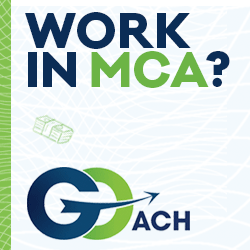Results 51 to 75 of 77
-
10-07-2016, 05:21 PM #51Senior Member











 Reputation points: 307559
Reputation points: 307559
- Join Date
- Jun 2015
- Posts
- 3,323
How about broker commission? Not all lenders offer early payoff.
The average deal size in our space is about 25k where apr as opposed to simple will confuse the merchant . Look at the credit cards where they need to put all the examples. We are not dealing with big companies with cfo 90 percent of the time
-
10-07-2016, 05:29 PM #52Zachary Ramirez CEO
Phone: 562-391-7099
Email: zach@zacharyjosephramirez.com
1661 N. Raymond Ave #265
Anaheim CA 92801
-
10-07-2016, 05:35 PM #53Member










 Reputation points: 1406
Reputation points: 1406
- Join Date
- Jan 2016
- Posts
- 42
-
10-07-2016, 05:41 PM #54Member










 Reputation points: 1406
Reputation points: 1406
- Join Date
- Jan 2016
- Posts
- 42
-
10-07-2016, 05:47 PM #55Zachary Ramirez CEO
Phone: 562-391-7099
Email: zach@zacharyjosephramirez.com
1661 N. Raymond Ave #265
Anaheim CA 92801
-
10-07-2016, 05:48 PM #56jotucker1983Guest
I understand your point of view, I just don't understand how it makes any sense to discuss "interest rates" on a product that has no interest rates, just so a merchant can "better compare" products?
If a merchant wants to compare products, how about we look at the "total costs" of the transaction for one product v.s. that of another?
Why do we have to discuss an APR or an interest rate when some products being compared have no such attributes?
-
10-07-2016, 05:52 PM #57Zachary Ramirez CEO
Phone: 562-391-7099
Email: zach@zacharyjosephramirez.com
1661 N. Raymond Ave #265
Anaheim CA 92801
-
10-07-2016, 06:02 PM #58Member






 Reputation points: 540
Reputation points: 540
- Join Date
- May 2015
- Posts
- 21
If It's Not A Loan, Then APR Does Not Belong
I'm sorry, but I just can't seem to wrap my head around the notion of somehow forcing an investor to impute, let alone disclose to a merchant, an APR on a future receivables purchase and sale transaction. You can't calculate APR without an interest rate, and there is no interest involved in a future receivables purchase and sale transaction. I keep hearing a lot of meritless arguments, but at the end of the day I think we can all agree that if the transaction involved the sale of anything other than future receivables, e.g., money, then there would be zero debate about this.
Here's a fun example - let's say a merchant is in the business of selling firewood (yes, I'm really into firewood lately), and he sells firewood for $250/cord. The merchant needs $10,000 right now to buy a new trailer. So he agrees to sell 60 cords to an investor, at the rate of 10% of the total wood he cuts per month, in exchange for immediate payment of the $10,000. Let's also assume the merchant cuts an average of 50 cords of wood per month. Therefore, the merchant would be delivering an average of 5 cords of wood per month until the 60 cords are delivered, which would take approximately 12 months.
The merchant is happy because he gets his $10K right now, when he needs it. The investor is happy because he's getting a sweet deal on firewood. Maybe he likes to burn a lot of fires and now he's locked in his pricing for a while at a substantial discount, and can rely on the steady stream of firewood being delivered every month regardless of climate, supply/demand, or other circumstances. Or maybe he wants to flip the wood, knowing he can not only sell it at the going rate of $250/cord, but in the deep dead of winter when firewood is scarce, he can probably mark it up even more and increase his profit.
In this example, the merchant is selling $15,000 worth of wood for a lump sum upfront payment of $10,000. Would you honestly expect the purchaser to impute an APR on this transaction and provide a legal disclosure thereof to the merchant? And if you answered yes to this question, you're basically suggesting that somehow the merchant in fact "borrowed" the $10,000 from the investor, thus completely delegitimizing the entire nature of the original purchase and sale transaction, and placing an obligation with enormous legal and financial ramifications on the investor to calculate and disclose some imaginary, contrived metric to the merchant prior to completing this deal.
But no, of course you wouldn't go there. The guy is selling firewood. This is an actual type of transaction that happens every day. I could substitute fuel oil or any other commodity and we would see real life examples like this anywhere we were to look. Just because the going rate of firewood is $250/cord and he sells it for $167/cord and delivers it over time does NOT make it a loan.
But when you change the commodity to money, all of a sudden people's brains start to short-circuit and they can't compute how this works anymore. Some people simply can't (or choose not to) see the differences between these and actual loan transactions. Just because the commodity being purchased is money doesn't make it a loan. The nature of the transaction makes it a loan. And if it's a properly structured future receivables purchase and sale, then it's not a loan, and nobody has any business bringing a completely irrelevant term such as APR into the equation. It's like forcing a football coach to measure player performance based on RBIs.
-
10-07-2016, 06:04 PM #59
Last edited by Zach; 10-07-2016 at 06:06 PM.
Zachary Ramirez CEO
Phone: 562-391-7099
Email: zach@zacharyjosephramirez.com
1661 N. Raymond Ave #265
Anaheim CA 92801
-
10-07-2016, 06:09 PM #60jotucker1983Guest
Zach,
Got it, but here are my questions to you if you are going to use this approach:
- What interest rate would you even use for the product(s)? Would you use a simple interest rate or a compound interest rate?
- Would you calculate a standard annual percentage rate (APR) or an effective annual percentage rate?
- How can you be certain your calculation of any annual percentage rate on a lease or factoring based product is accurate?
- Why not just take a more simplified (and relatively accurate) approach to comparing "total cost", by just listing out the total cost the merchant would pay on a lease or factoring deal, v.s. that of the loan deal?
-
10-07-2016, 06:13 PM #61Member










 Reputation points: 1406
Reputation points: 1406
- Join Date
- Jan 2016
- Posts
- 42
-
10-07-2016, 06:13 PM #62
You're preaching to the choir. I tell merchants sometimes, "you buy that widget for X and you sell it for X plus. What is the interest you are charging the customer? Oh, there is NO interest?!?! Well, same scenario with me"
Alas, it is not up to us and what we think or want. Also, too many scumbag reps out there, with no regard whatsoever for the merchant, are stacking and charging "junk fees" ad nauseum. Then they threaten to sue if they 2 payments bounce. This comes across tot he layman as a loanshark.
Unfortunately, most of the USA are laymen to you and me. However, they also vote and help keep those congressmen we need on our side in office.
-
10-07-2016, 06:17 PM #63Member






 Reputation points: 540
Reputation points: 540
- Join Date
- May 2015
- Posts
- 21

First of all, I have a lot of respect for you Zach. You're a good dude, love your posts, and I respect your hustle. I appreciate your opinion and look forward to debating this with you.
IMO, there are a couple of problems with your statement and overall position on the matter:
For one, you're implying intent. There are thousands of people in the business of purchasing future receivables, a multi-billion dollar global industry. You purport to know what they are all thinking? Did they all get together at some secret Jekyll Island type meeting and conspire this plot to create a fake-loan-disguised-as-a-sale transaction to avoid usury laws? And when you consider that usury laws generally don't apply in commercial transactions, why would they do such a thing? Maybe there are certain legal and economic benefits to future receivables purchase and sale transactions that make them more attractive to certain investors under certain circumstances.
And then there's the guy buying the firewood. Is he trying to avoid usury laws? Remember, you really should be able to prove your point using the firewood analogy. If the argument falls apart in the context of the firewood analogy, then it can't hold water when discussing future receivables sales
-
10-07-2016, 06:40 PM #64
The non-binding informational/comparison tool will also be wrong. Don't expect any pats on the back for transparency when all the APRs you present are wrong and misleading whether in your marketing or on your contract, whether calculated on a 12-month basis, or whether or not you have a note that says "variations may occur."
Incorrect APRs on a road paved with good intentioned transparency will still result in you being wrong and not transparent. You will be sued, fined, and/or worse.
-
10-07-2016, 06:55 PM #65Member










 Reputation points: 1406
Reputation points: 1406
- Join Date
- Jan 2016
- Posts
- 42
If you pay a daily average of A, the advance will be repaid in 6 months, the APR would be X
If you pay a daily average of B, the advance will be repaid in 12 months, the APR would be Y
If you pay a daily average of C, the advance will be repaid in 18 months, the APR would be Z
Everyone of those scenarios would be accurate even if they paid it back in 9 months.
-
10-07-2016, 08:01 PM #66Senior Member











 Reputation points: 24139
Reputation points: 24139
- Join Date
- Apr 2014
- Location
- Washington DC
- Posts
- 421
If APR disclosure is what leads to re characterization, UDAAP violations, or "kills" the product first, I will be absolutely shocked -- that is not what is going to do it. Did you know it's easier to get a reduction in payment on my loans than it is with many of the ACH cash advance companies to feature a contractual true-up? You could argue my loans have more variation (and therefore bigger variance in projected APR) than many of the daily ACHs in the market. In any event, this is a moot point. The biggest guys are on board, question is, who else will be? There are also an an increasing number of "debt" concepts used by cash advance companies (e.g. COJs which is a confession of a DEBT due), but when it comes to APR that will make a product to harder to sell, it's "too dangerous". I get the reasoning, I just don't agree.
Sean, you know my view on APR and the relevance is not just cost transparency but also due to the propensity to renew -- without giving me a "legal" answer, let's talk about hypothetical alternatives: what if a cash advance company disclosed the EFFECTIVE APR (or IRR or APY) on the first deal before they renewed for the next cash advance? That is not something anyone is considering, but curious to know your thoughts on that (could be a good way to include double dipping disclosure!). Regardless of everyone's views, there are also now several attorneys that have signed off on effective APR disclosure for cash advances that includes sufficient caveats (non-credit, no term, etc.) that there shouldn't be increased re-charactarization risk just due to this disclosure.
For two reasons: (1) renewal rates which are very high on both cash advances and short term loans make TCC just one of several cost metrics to review if it just keeps churning -- and that is what makes APR very relevant because the merchant needs to ensure they are getting a ROI that is higher than the rolling APR (which doesn't YET include the cost of double dipping); (2) how does that comparison work properly on a stand alone basis where the low-rate products (SBA, banks, the Fundations of the space) have high TCC but little or no prepayment penalties but are clearly a "better" alternative unless it truly is a one-time need?
The point is, everyone agrees APR isn't always the best or most relevant metric (whether it's for non-credit reasons (i.e. cash advance), term reasons, or structure reasons), but it's one that will start being disclosed for a variety of products. Way too many merchants think anything from factor rate to holdback % is APR or interest rate. More disclosure is a good thing, and there's no reason you or any other broker shouldn't be able to sell the product even if effective APR is disclosed. No one's proposing replacing TCC with APR -- it's both, along with other key cost metricsLast edited by Cfairbank; 10-08-2016 at 01:17 AM. Reason: clarification
Carl Fairbank
Founder & CEO boldMODE
www.boldmode.com
Carl@boldmode.com
Founder & former CEO of Breakout Capital (sold to SecurCapital in 2019)
www.breakoutfinance.com
-
10-08-2016, 12:17 AM #67jotucker1983Guest
Carl but we have to consult and educate merchants as well, it doesn't matter if a merchant is sitting down with some calculator trying to calculate the "APR" on a merchant cash advance, there's no APR to calculate.
All we can do is the following:
- Option One: Merchant has one option of a $25,000 loan with amortization offer. The term is one year with a 9% interest rate. Monthly payments will be about $2,186 and assuming the merchant doesn't sign on for any other services related to the loan, doesn't miss payments, etc., the only "costs" they will pay is in relation to the 9% interest rate formula that's tied to the loan and that "cost" will be about $1,235.
- Option Two: Then the merchant has an option of a cash advance, in which the merchant is doing about $25k in monthly V/MC and the MCA firm will advance $25,000 today in exchange for collecting a total of $31,250 of their upcoming V/MC volume, using an 11% daily holdback on their $25k average monthly V/MC volume. Assuming the merchant's V/MC volume stays the same going forward, the MCA firm will complete their purchase arrangement in full in 12 months. Also assuming there are no other fees associated with the transaction, the "total costs" of this buy/sell transaction to the merchant is $6,250. This transaction will have a 1.25 cost factor.
So when we do the comparison between the products, we should be comparing the $1,235 cost for the amortizing loan (with no additional fees added) v.s. the $6,250 in costs for the merchant cash advance (with no additional fees added), along with comparing other aspects of the products that differ from one another such as the "speed" to funding.
There should not be an APR calculated with the merchant cash advance transaction because there is no interest rate formula associated with the transaction. The transaction uses cost factors in determining the "true cost" of the transaction, it does not use interest rates and thus, interest rates should not be discussed at all.
I understand that a merchant might try to "calculate" an interest rate on a cash advance, but it's our job to educate/consult them on the realities of the transaction.Last edited by jotucker1983; 10-08-2016 at 12:22 AM.
-
10-08-2016, 12:18 AM #68
Feel free to share who you are talking about :-)
The problem is that an APR would be wrong, false, misleading, deceptive, not transparent, counter to the spirit of the contract and untruthful, not that they would be harder to sell.
There is ALWAYS recharacterization risk. And putting an APR (which will be incorrect of course) on a purchase agreement boosts that risk exponentially.
I know how you feel about "double dipping." I personally have no opinion on the practice. Transparency and disclosures on a renewal is definitely a worthwhile area for funders to visit, but it doesn't suddenly warrant the need for an APR. It's still just as inapplicable.
-
10-08-2016, 12:31 AM #69
Here is what will happen if indeed a big player does this. Everyone bookmark this thread.
- A big MCA company will put an APR on a contract to achieve "transparency"
- Someone will allege that the APR is deceptive
- That someone will be correct
- The MCA company will be sued
- The MCA company will be hit with government fines
- The MCA company will say they put an APR to help small business owners compare products
- But with the APR being wrong, they will look doubly deceptive
- We will revisit this thread and realize this was all easily predictable
- You will wonder how I knew this would happen
crystalball.jpg
-
10-08-2016, 01:14 AM #70Senior Member











 Reputation points: 24139
Reputation points: 24139
- Join Date
- Apr 2014
- Location
- Washington DC
- Posts
- 421
Agreed, sorry I clarified what I wrote -- there shouldn't be increased re-charactarization risk.
So what about the other proposal: if you renew, show the customer the effective APR (or some other time-based metric) on the first deal before giving the second? Again, not advocating for this, just curious to know your response. Forget double dipping or interest/fee acceleration for now -- i agree there are better ways to disclose that.
John, my point was on a contract that was longer than a year (such as an SBA loan). Of course if rate and TCC is lower, the answer is easy. But if you have DealStruck or SBA loan vs. a short term product, the TCC for the former will likely be materially higher. Even if you don't subscribe to APR on cash advance, TCC isn't the only relevant disclosure, there are several (such as cents on the dollar, total monthly payment, etc.) -- and I think anything percentage-based is confusing if not a true (annualized) interest rate or APR. I know you and many other brokers/salespeople will sell the product properly and act as a fiduciary to your client (even though no true requirement exists yet on brokers), but does the whole market?Last edited by Cfairbank; 10-08-2016 at 01:50 AM.
Carl Fairbank
Founder & CEO boldMODE
www.boldmode.com
Carl@boldmode.com
Founder & former CEO of Breakout Capital (sold to SecurCapital in 2019)
www.breakoutfinance.com
-
10-08-2016, 08:30 AM #71Senior Member











 Reputation points: 99426
Reputation points: 99426
- Join Date
- Sep 2012
- Location
- New York, NY
- Posts
- 1,780
I have to agree with Sean here. APRs have no place in the discussion of a merchant cash advance and do nothing to add more "transparency" to the consumer. A cash advance contract gives you the total payback amount on the first page and that is the most important number that a merchant needs to know. The second number the merchant needs to know is his daily payment or estimated term length (if it's a credit card deal). If you want to further educate the merchant, you can explain the factor rate of the advance. The customer now has enough information to make an educated decision or do some comparison shopping.
If you try to extrapolate a factor rate into an APR, you'll come up with some very unsavory numbers that will scare off consumers. It's no different than if a mortgage banker were to tell his client, "Okay buddy, my bank is going to give you $450,000 today so you can buy that house, and you'll have a total payback amount of $773,412 dollars after 30 years at a 4% APR. Congrats! Please sign on the line that is dotted..."
That's just not the way you sell a prospective customer. Instead a mortgage broker or car salesman focuses on the low affordable monthly payment and the benefit of owning the home or car. Effective selling in this space is based on explaining the value and benefits of the product. People who try to sell cash advances based on APR will be woefully ineffective at closing many deals.Last edited by MCNetwork; 10-08-2016 at 08:35 AM.
-
10-08-2016, 10:31 AM #72Member










 Reputation points: 1406
Reputation points: 1406
- Join Date
- Jan 2016
- Posts
- 42
Three dimensions to financing, periodic cost, total cost, and time-value cost. I agree that one or two of those may weigh more depending on the finance situation, but all three should be understood.
I disagree with Sean that providing a multi scenario APR cost increases legal risk. Worded clearly, a good faith defense could be used against any legal challenge.
-
10-08-2016, 11:12 AM #73Senior Member











 Reputation points: 99426
Reputation points: 99426
- Join Date
- Sep 2012
- Location
- New York, NY
- Posts
- 1,780
Time value cost is a nebulous realm where concepts like APR and opportunity cost reside. These are abstract terms best left to the academics and CPAs. My job as a salesman is to perform a needs based analysis and determine the ROI to the merchant of taking the advance. On the flip side, I can also calculate the negative impact to his business of NOT taking the advance. If the transaction can provide value to the merchant, then all parties will agree that this is a good option. APR is entirely irrelevant and is better left for the non-sales pundits and legislators to bicker over. Cash advance factor rates are set by the market forces of supply and demand. There is clearly an appetite for advances of all factors ranging from 1.08 to 1.45 depending on credit worthiness and known risk parameters of each business. If a merchant doesnt like one company's offer, he's free to shop around. Let laissez faire capitalism take it's course!
Last edited by MCNetwork; 10-08-2016 at 01:58 PM.
-
10-10-2016, 10:10 AM #74Senior Member











 Reputation points: 54989
Reputation points: 54989
- Join Date
- Dec 2013
- Posts
- 4,713
Wow so much to read. Perhaps Sean will write a piece on the NACLB.
Marcus Clapman | Business Development | Cresthill Capital
(High Commissions Payout Group)
Tel: 917-521-6528 | Fax: 212.671.1473
Email: bizdev@cresthillcapital.com
http://www.cresthillcapital.com
-
10-11-2016, 04:53 PM #75Senior Member











 Reputation points: 338677
Reputation points: 338677
- Join Date
- Mar 2015
- Location
- Boynton Beach
- Posts
- 3,485
HI DF,
I attended NACLB and found it very informative! I encourage all advisors and brokers to attend next year. It is a great place to meet all types of non-bank lenders and learn about their offerings. I met with Sean, Nick, and Cheryl.... great people from this forum!
I had many brokers and advisors approach me at NACLB to inquire about our products.
Markets move, products change, and customers will want cost effective and flexible ways to finance their businesses. That being said....arm yourselves with a few great products for your customers or they will likely find them somewhere else. If anyone would like to learn more about factoring or asset based lines of credit, I would be happy to schedule a call. In the mean time.....talk to your customers, learn about their wants and needs, and learn about other products that can help their businesses. After all.....we all make money by servicing customers!
Best,
Kevin
Similar Threads
-
Non performing notes avail...
By Jstarr in forum All Other LendingReplies: 0Last Post: 03-03-2016, 12:54 PM -
NACLB Conference in Vegas
By JCC in forum Business LoansReplies: 4Last Post: 04-03-2015, 07:26 AM -
Lend360 Conference
By Sean Cash in forum Merchant Cash AdvanceReplies: 22Last Post: 10-21-2014, 03:35 PM -
SEAA Conference- This Week
By 1StopFunding in forum Merchant Cash AdvanceReplies: 0Last Post: 03-24-2014, 12:37 PM -
First Data offering $250 million senior secured notes
By Capital Stack in forum Payment ProcessingReplies: 3Last Post: 10-23-2012, 12:58 PM



 Reply With Quote
Reply With Quote


















